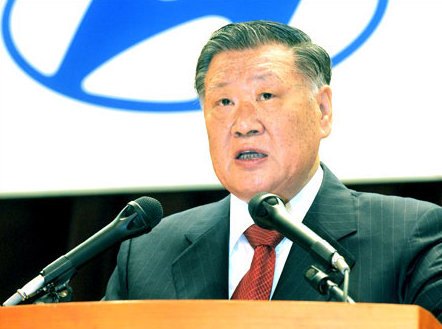Hyundai CEO Ordered To Pay His Company $60m For Money-Losing Deals

For years, TTAC has argued that General Motors suffers from a profound lack of accountability. Specific instances include the $2b “Fiatsco,” most of Roger Smith’s tenure, and cars like the Pontiac Aztek and Cadillac Cimmaron. Incidents like these helped GM along its decades-long plunge into bankruptcy, unchecked by the lax corporate governance of what came to be called its Board of Bystanders. Hyundai’s CEO may have received similarly lax treatment from South Korea’s criminal justice system, but at least the shareholders are standing up for their investment.
AFP [via Google] reports that Hyundai Motor Chairman, Chung Mong-Koo, has been ordered by a South Korean Seoul Central District court to pay $60 million in damages to Hyundai Motor Company. The suit was brought forward by 14 minority shareholders of Hyundai Motors and a non-governmental group called “Solidarity for Economic Reform.” This suit was brought about because shareholders believe that Chung Mong-Koo and Kim Dong-Jin brought huge losses on the company when, in 2001, Hyundai Motors participated in share sales of affiliates in the Hyundai Chaebol (Hyundai Airspace & Aircraft Co. and Hyundai Hysco).
“The court has recognised the fact that Chung made Hyundai Motor participate in the share sales to head off any threat to the Hyundai Group’s managerial rights, even though it could inflict damage on his company,” Yonhap news agency quoted the judges’ ruling as saying. “This is a case that reveals the problem of family-run management that focuses on the interests of major stockholders and the executives of Hyundai Motor.” If only GM’s investors had taken such proactive steps about the firm’s inept and insular management years ago, they might not have been wiped out in the government’s bailout/takeover.

More by Cammy Corrigan
Latest Car Reviews
Read moreLatest Product Reviews
Read moreRecent Comments
- Jalop1991 There is no inflation. Everything is cheaper than it was 5 years ago. SHRIMP AND GRITS!
- ChristianWimmer Exterior and interior look pretty flawless for such a high mileage car. To me this is an indication that it was well-maintained and driven responsibly. It’s not my cup of tea but it’s bound to find an enthusiastic owner out there.And with ANY car, always budget for maintenance.
- Fred I'm a fan and watch every race. I've missed a few of the live races, but ESPN repeats them during more reasonable hours.
- Mikesixes It has potential benefits, but it has potential risks, too. It has inevitable costs, both in the price of the car and in future maintenance. Cars with ABS and airbags have cost me at least 2000 bucks in repairs, and have never saved me from any accidents. I'd rather these features were optional, and let the insurance companies figure out whether they do any good or not, and adjust their rates accordingly.
- Daniel Bridger Bidenomics working.

































Comments
Join the conversation
Just like voting for the board, every shareholder should get to punch these guys once for every dollar they have lost.
Hyundai's corporate history is certainly nothing to brag about. But shareholders taking the CEO to task is a lesson the rest of the world could learn from; a positive example of free market capitalism.